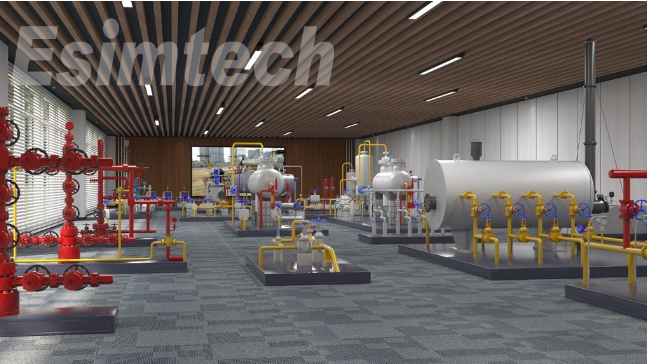Harnessing The Power Of Artificial Intelligence In Oil And Gas Simulators
Artificial intelligence (AI) is transforming the oil and gas industry by improving exploration, production, and operational efficiencies. AI is a broad term that encompasses various technologies such as machine learning, deep learning, and neural networks, among others. Oil and gas simulators are computer programs that can simulate complex systems in the oil and gas industry, such as reservoirs, drilling operations, and production facilities. AI can be used in oil and gas simulators to improve their accuracy, efficiency, and effectiveness. In this article, we explore the benefits and applications of artificial intelligence in oil and gas simulators.

The Basics of Oil and Gas Simulators
Oil and gas simulators are computer programs that can simulate complex systems in the oil and gas industry. They are used to model and predict the behavior of reservoirs, drilling operations, production facilities, and transportation systems. They can be used to optimize production, reduce costs, and improve safety.
Oil and gas simulators use mathematical models to simulate the physical and chemical properties of the system being modeled. For example, a reservoir simulator might use a mathematical model to simulate the flow of fluids through the reservoir, taking into account the reservoir’s geology, fluid properties, and production history.
Simulators can be used to generate data that can be used for decision-making purposes. For example, a reservoir simulator can be used to predict the production of a well over time, allowing operators to make informed decisions about production optimization.
The Benefits of Artificial Intelligence in Oil and Gas Simulators
Artificial intelligence can be used in oil and gas simulators to improve their accuracy, efficiency, and effectiveness. Some of the benefits of AI in oil and gas simulators include:
Improved accuracy: AI can be used to improve the accuracy of oil and gas simulators by reducing uncertainties and errors in the modeling process. Machine learning algorithms can be used to learn from historical data and improve the accuracy of predictions.
Reduced computational time: Oil and gas simulators can be computationally intensive, and simulation times can be lengthy. AI can be used to reduce computational time by optimizing the simulation process and improving the efficiency of the simulator.
Improved decision-making: AI can be used to provide real-time recommendations based on the results of the simulation. For example, a production optimization simulator can use AI to suggest the most efficient way to optimize production based on the current production data.
Improved safety: AI can be used to improve safety in oil and gas simulators by identifying potential hazards and providing real-time recommendations to prevent accidents.
Applications of Artificial Intelligence in Oil and Gas Simulators
Artificial intelligence has several applications in oil and gas simulators. Some of the applications include:
Reservoir modeling and simulation: AI can be used in reservoir modeling and simulation to improve the accuracy and efficiency of the simulator. Machine learning algorithms can be used to learn from historical data and improve the accuracy of predictions.
Production optimization: AI can be used in production optimization simulators to suggest the most efficient way to optimize production based on the current production data.
Drilling optimization: AI can be used in drilling optimization simulators to optimize drilling operations and reduce drilling time.
Pipeline and transportation optimization: AI can be used in pipeline and transportation optimization simulators to optimize transportation routes and reduce transportation costs.
Conclusion
Artificial intelligence is transforming the oil and gas industry by improving exploration, production, and operational efficiencies. AI can be used in oil and gas simulators to improve their accuracy, efficiency, and effectiveness. Some of the benefits of AI in oil and gas simulators include improved accuracy, reduced computational time, improved decision-making, and improved safety. AI has several applications in oil and gas simulators, including reservoir modeling and simulation, production optimization, drilling optimization, and pipeline and transportation optimization. As the oil and gas industry continues to evolve, artificial intelligence will play an increasingly important role in improving efficiency, reducing costs, and enhancing safety. The future of oil and gas simulators is bright, as AI is expected to continue to transform the industry and drive innovation. With the power of AI, oil and gas companies can improve their decision-making, increase their efficiency, and reduce their costs, ultimately leading to more successful and sustainable operations.
